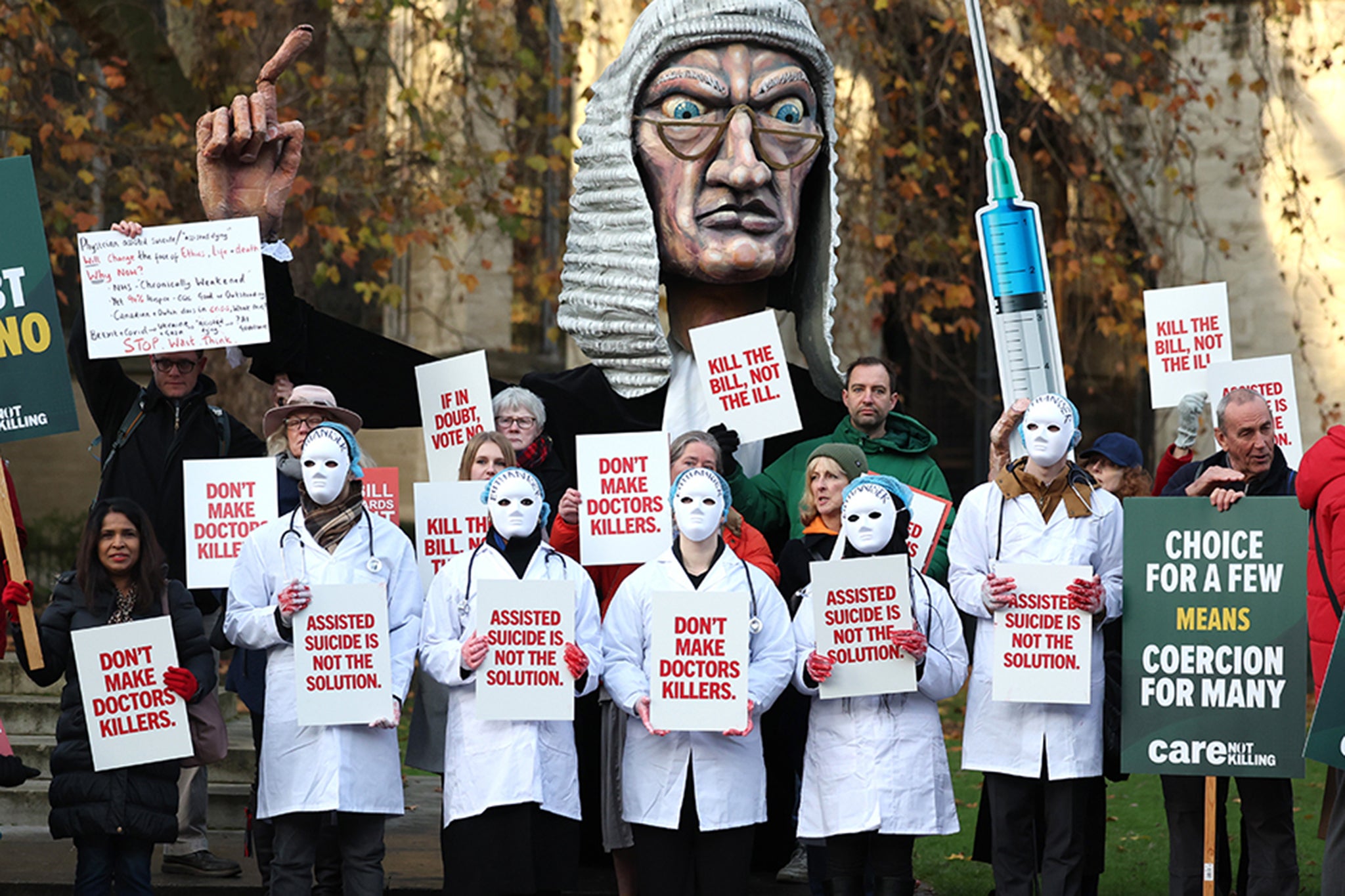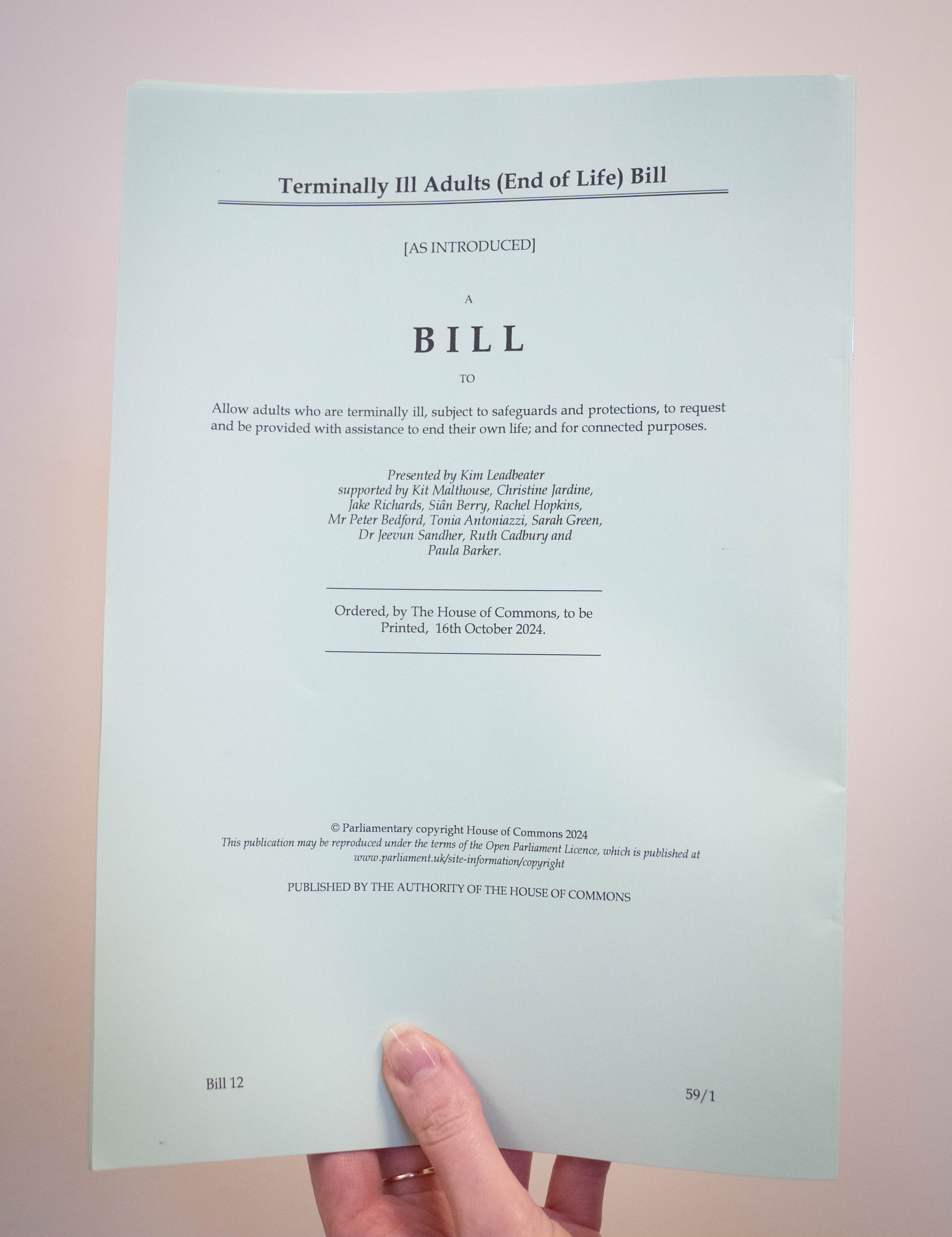Kim Leadbeater has insisted that her assisted dying bill is not being watered down after she announced plans to remove the need for a High Court judge to sign off applications.
Ms Leadbeater was reacting to a furious backlash to her plans after veteran Labour MP Diane Abbott led calls for the assisted dying legislation to be voted down with the biggest safeguard in the bill set to be removed.
Responding to critics on Radio 4’s Today programme, Ms Leadbeater said: “It wouldn't be done in private, it would be taking into account patient confidentiality, but there would be public proceedings.
"And, actually, I think it's really difficult to suggest that by having three experts involved in this extra layer of scrutiny that is somehow a change for the worse."
Instead, psychiatrists and social workers would be involved in approving applications as part of a Voluntary Assisted Dying Commission, under proposals aimed at beefing up safeguards under the new law.
The commission would be led by a high court judge or senior former judge who would receive all applications and reports from two independent doctors, which would then be referred to a three-member panel chaired by what has been described as a senior legal figure.

Ms Leadbeater said the panel would be “wholly independent” and would need to be satisfied the decision by the dying person was “voluntary and not the result of pressure or coercion, and that the person had the capacity to make that decision”.
Reacting last night, a number of MPs warned that the changes meant that promised safeguards in the legislation would not be strong enough. The row came after the Law Society also raised concerns over the lack of strength in the original safeguards even before the bill was amended.
On X last night, Ms Abbott said: “Safeguards on the Assisted Dying Bill are collapsing. Rushed, badly thought-out legislation. Needs to be voted down.”
Former Lib Dem leader Tim Farron added: “Lots of MPs voted for the bill at second reading in the expectation that there would be stronger safeguards added at committee stage and yet we now see that even the weak safeguards that existed, are being dropped.”
And Tory MP Danny Kruger, who led the opposition at its second reading, said: “Approval by the High Court - the key safeguard used to sell the Assisted Suicide Bill to MPs - has been dropped. Instead we have a panel, NOT including a judge, of people committed to the process, sitting in private, without hearing arguments from the other side. A disgrace.”
In its submission, the Law Society warned the safeguards as originally proposed were not strong enough but had questioned the role of the courts in the original legislation because of an impact on resources.
It warned the need for High Court approval and its impact on court resources must be addressed.
The Law Society said: “If Parliament deems this step necessary, then the Bill needs to be clear on how the High Court will deal with the applications and increased workload. Lawyers may have a role in providing advice and representation, in which case legal aid should be made available on a non-means-tested basis.”

But it raised concerns about a lack of information required to justify deaths.
It added: “Currently, medical practitioners do not need to provide reasons for their conclusions in statements after conducting assessments. Parliament should consider requiring more information to be recorded, to help the High Court assess whether the scheme’s requirements have been met.
“Regulations, codes of practice and guidance on core issues must be publicly consulted and published before any changes take effect. They should be reviewed regularly to ensure they remain fit for purpose.”
Ms Leadbeater is expected to bring forward amendments for a so-called “judge plus” system, after hearing concerns during expert evidence sessions last month.
A group of 23 MPs on the bill committee is preparing to undertake line-by-line scrutiny of the proposed legislation from Tuesday, with the process expected to last weeks.
As it stands, the Bill could see terminally ill adults in England and Wales with under six months to live legally allowed to end their lives, subject to approval by two doctors and a High Court judge.
Ms Leadbeater had already argued the High Court approval element makes her proposed legislation the strictest in the world.

Fears around people feeling coerced into an assisted death have been raised before, during and since the debate around a new law.
Among the expert evidence to the committee in January, learning disability charity Mencap warned of the “extremely risky and dangerous moment” an initial conversation about the option of assisted dying could be.
Ms Leadbeater has already shared her proposal that doctors would be required to set out a range of other options available to a patient if they discuss assisted dying.
On the latest proposed changes, she said: “Many of those who gave evidence to the committee, either in person or in writing, recommended an enhanced role for professionals such as psychiatrists and social workers.
“I agree that their expertise in assessing that a person is able to make a voluntary decision free from coercion or pressure, in addition to the necessary legal checks, will make the system even more robust.”
Ms Leadbeater said she was also conscious of England’s chief medical officer Professor Sir Chris Whitty’s evidence about keeping safeguards as simple as possible.
He told MPs what is not wanted is for a person with a life expectancy of six months to be “stuck in a bureaucratic thicket”.

Ms Leadbeater said the two independent doctors would be required to submit reports to the panel on each person applying to the commission for permission to die.
The panel would then decide whether they needed to make further inquiries, including hearing from the dying person, the doctors or anyone else.
Ms Leadbeater said the commission would report each year on the number and nature of all applications referred to it, and whether they were approved or rejected.
No date has been given yet for the Bill to return to the Commons for further debate by all MPs at the report stage, but it is likely to be towards the end of April.







